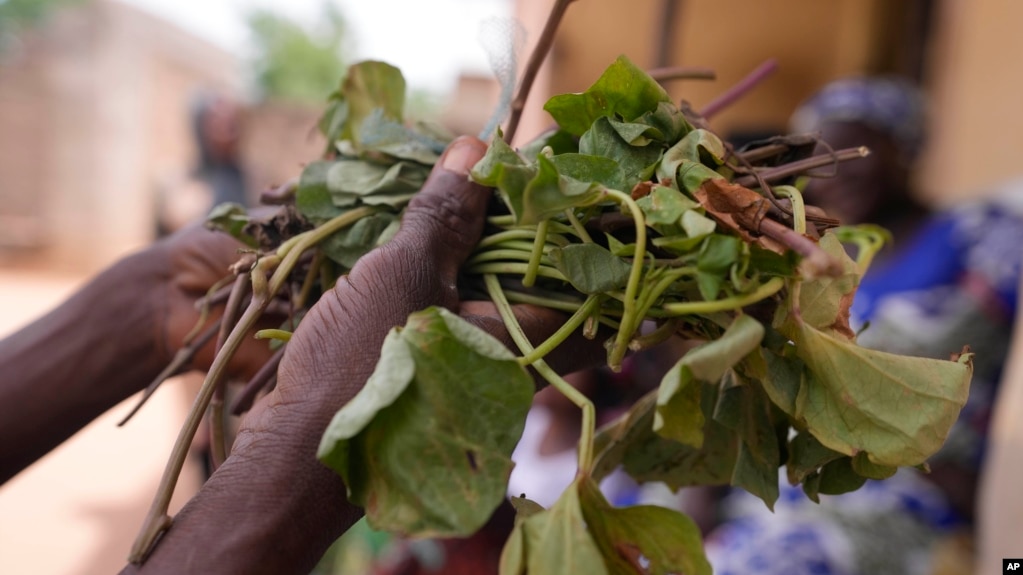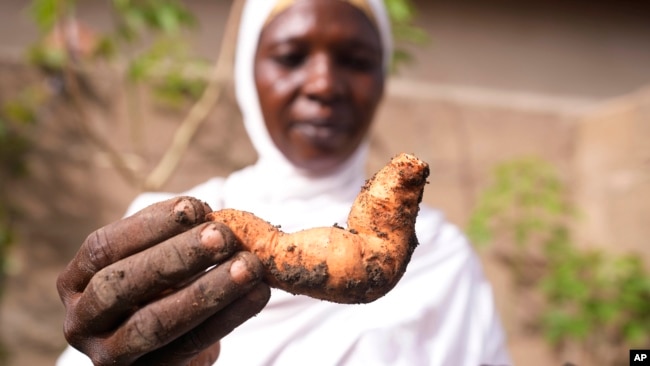AUDIO
UN: One-fourth of World’s Youngest Children Lack Food

A recent report from the U.N. children's agency UNICEF says that 181 million children younger than 5 live in severe food poverty. That is more than one-fourth of the world’s youngest children.
The report centered on nearly 100 low- and middle-income countries. The report defines severe food poverty as eating nothing in a day or, at best, two out of eight food groups the agency recognizes.
Africa’s population of more than 1.3 billion people is one of the most affected mainly due to conflict, climate crises and rising food prices. The continent accounts for one-third of those facing hunger and 13 of the 20 most affected countries.
But the report noted some progress.
The percentage of children living in severe food poverty in West and Central Africa fell from 42 percent to 32 percent over the last ten years, it said. The report noted developments including diversified crops and performance-based rewards for health workers.
Without important nutrients, children living with “extremely poor” diets are more likely to experience wasting. Wasting is a life-threatening form of malnutrition, UNICEF said.
Harriet Torlesse is one of the report's writers. She told The Associated Press, “When wasting becomes very severe, they are 12 times more likely to die.”
In Nigeria
In several Nigerian communities, UNICEF is training thousands of women in how to increase their families’ nutrient intake with cassava, sweet potato, maize and vegetables grown in gardens at home. The agency is also helping train them in raising livestock and chickens.
Several women recently gathered in a Kaltungo village to learn how to prepare those foods. Even without rain, they can be grown in sand-filled containers that require little water.
Mothers in Nigeria also face the country's worst cost of living crisis. Growing food at home saves money.
Aisha Aliyu is a 36-year-old mother of five. She said her youngest child “used to be skinny but is growing fatter” because of what they now grow at home.
Kaltungo is a semi-arid area where climate change has limited rainfall in recent years. Some children have died of malnutrition in the past because there is little food, said Ladi Abdullahi. She helps train the women.

The Sahel of the Sahara Desert is another arid area that experiences violent extremism. Malnutrition in the Sahel has reached emergency levels, said Alfred Ejem. He is a food security advisor with the Mercy Corps aid group in Africa.
Ejem added that families have been forced to eat leaves and insects to survive because of displacement and climate change.
In Nigeria's troubled northwest area, the French medical organization Doctors Without Borders said at least 850 children died last year within 24 to 48 hours of being admitted to its health facilities.
Many malnourished children in the area never make it to a hospital because they live in rural areas or their families cannot pay for care.
Inequality also plays a part in severe food poverty among children in Africa, the new report said. South Africa is the most unequal country in the world. And about one in every four children is affected by severe food poverty even though it is the continent’s most developed nation.
Governments and partners must act urgently, Torlesse said. “The work starts now.”
____________________________________________
Words in This Story
income — n. money that is earned from work, investments, business, etc.
diversify — v. to change so that it has more different kinds of people or things
arid — adj. very dry
https://learningenglish.voanews.com/a/un-one-fourth-of-world-s-youngest-children-lack-food/7645717.html